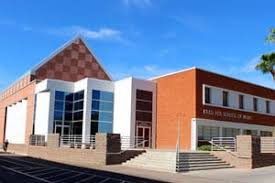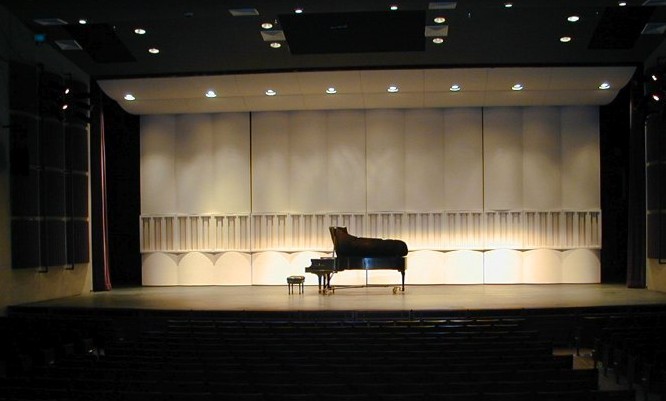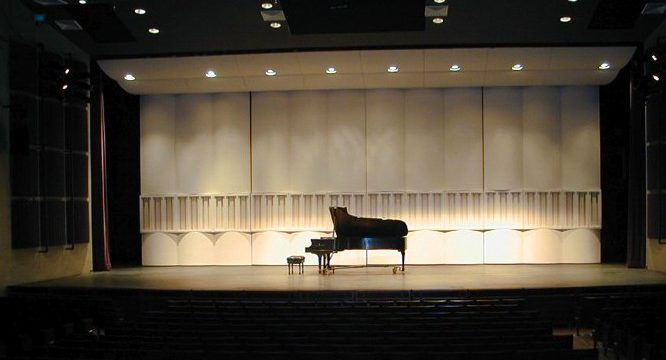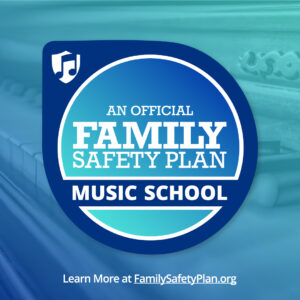I believe that recitals are of huge importance to music students. First of all, I know of no better way to motivate a student to practice, then to put a date on the calendar and say, “You’ll be playing your song on this day for a bunch of people”! If you or your child is eligible, you should consider signing up just for the practice incentive. Remember, at Allegro, students must have at least 6 months of private lessons on their instrument to be eligible to perform in our recitals.

“I’m eligible for the recital and I’ve signed up with my teacher, but this will be my first recital and I’m nervous about performing! Can you help me?”
Absolutely. The good news is that you’re in good hands! Every teacher at Allegro School of Music has either a music degree or professional performance experience, and most of us have both. We’ve all been there, and we’re dedicated to helping you with the following:
1. Choose a piece that is realistic for you to perform in the next recital.
2. Create and edit a version that will fit the recital time constraints
3. Learn and master the song
4. Learn proper stage etiquette and psychologically prepare for a successful performance
1. Choosing the right piece. Obviously, this is up to you and your teacher, but I thought I’d give you some general tips that I’ve learned after preparing hundreds and hundreds of students for recitals over the past 15 years. The most important thing to keep in mind is this: performing is an entirely separate skill from playing. Therefore, it’s best to reduce the amount of new material to a minimum. Be realistic. Sure, your ultimate goal might be to play the guitar solo to Stairway to Heaven, and if you had just a few more months… The point here is, please don’t put yourself in a position to have a bad performance because the piece is too hard for you right now. I have my students choose their songs in September if not earlier. I want to see that they can play their song fluently at least one month before the Recital date, so that we can focus on performance skills and stage presence in the lessons immediately prior to the performance. My goal is to have students that are so prepared 4 weeks before the recital, that I don’t even need to spend much time in their lessons on the Recital piece! Choosing the right piece (not too hard) and making sure you get it ready early is the most important component of playing well in public. Sometimes, I’ll have students work hard to master a difficult piece, and if they do, I let them play it, but I’ll also have a backup piece that I KNOW they can play in case they don’t. I would advise you to do the same if you want to play a song that is a big challenge for you. Make sure you have a backup that YOU KNOW you can play with ease if you are still trying to master your selection one month before the recital. In summary, crashing and burning in front of a bunch of people is no fun, and it can be particularly damaging to a first time performer. As John Wooden said, “Failing to prepare is preparing to fail”.
2. Editing your song. Allegro School of Music have gotten bigger and bigger and nowadays we typically have 500 students performing at recital time. Therefore, we must make sure that every student edits their selection to the right length so everyone gets a chance to play and recitals stay on schedule. Most beginners or first time performers will play a short, one-minute selection. Most other students will play two-minute selections, and a small number of more advanced students will play a four or five minute piece. Your teacher will work with you to create a version that makes musical sense and fits the time constraints so that the recitals begin and end on time.
3. Learning and Mastering your Song. Not much to say here other than, “PRACTICE PRACTICE, PRACTICE” Practice time in October and November is more important than last minute cramming in December. Make sure your teacher makes you a backing track or other form of accompaniment for your practice at home.
4. Stage etiquette and psychological preparation. This important component of a successful performance is probably the most overlooked. You see, playing in the comfort of your own home after you are all warmed up is simply not an accurate approximation of what it’s like to play in a concert hall for an audience. I like to have students give “Practice Performances” in the month leading up to the recital. These Practice Performances are held during the lessons, and at home for family and friends, etc. Here’s how it works:. The goal is to re-create the performance experience as closely as possible. In my studio, they go something like this: I’ll have the student walk in with their instrument, take a bow, and introduce themselves and their song. I applaud (I also usually have them play with their chair in a spot that they are not used to). They then play their song, with absolutely no stopping or restarting and no corrections from me. I clap, they take a bow, and walk out. Then we talk about what happened, and work on improvements. I know it sounds simple, but the reality is, most people do not know what would happen if they took their instrument out of the case and played a song from beginning to end without a warmup until they find themselves onstage at the recital. There is a huge psychological advantage to finding this out beforehand. I suggest that my students “Practices Performing” a lot during the month of December. That way, they are more likely to play their best, and not be thrown off by an unfamiliar venue, chair, audience, etc.

I hope that some of these suggestions will help you have a better experience at the next Allegro School of Music Recital. If you have any further questions about recital logistics, please contact the office. If you want to further discuss any of the concepts I’ve talked about in this article, ask your teacher, or shoot me an email (attn: Josh)
I’m looking forward to hearing all of you perform at the next Allegro recital!
Best Regards,
Joshua Brown, MM, Co-Director

